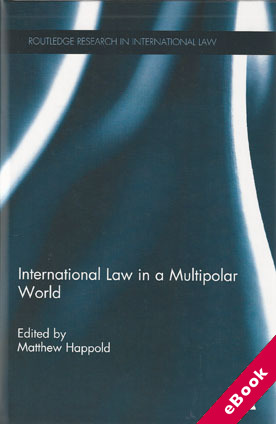
The device(s) you use to access the eBook content must be authorized with an Adobe ID before you download the product otherwise it will fail to register correctly.
For further information see https://www.wildy.com/ebook-formats
Once the order is confirmed an automated e-mail will be sent to you to allow you to download the eBook.
All eBooks are supplied firm sale and cannot be returned. If you believe there is a fault with your eBook then contact us on ebooks@wildy.com and we will help in resolving the issue. This does not affect your statutory rights.
Since the creation of the United Nations in 1945, international law has sought to configure itself as a universal system. And yet, despite the best efforts of international institutions, scholars and others to assert the universal application of international law, its relevance and applicability has been influenced, if not directed, by political power.
Over the past decade, discourse has tended to focus on the implications for international law of a unipolar world, characterised by US hegemony. However, that the international system may now be experiencing a tendency towards multipolarity, with various sites of power able to exert a telling influence on international relations and international law.
Recent events such as Russia’s excursion into Georgia, the breakdown of the Doha round of trade negotiations, the USA’s questionable actions in the war on terror, the prominence of emerging nuclear powers, China’s assertions of its own interests on a global scale, and the rise of regional trading blocs, all pose significant questions for international law and the international legal order.
International Law in a Multipolar World features contributions from a range of contributors including Nigel White, Michael Schmitt, Richard Burchill, Alexander Orakhelashvili and Christian Pippan, addressing some of the questions that multipolarity poses for the international legal system. The contributions to the volume explore issues including the use of force, governance , sovereign equality, regionalism and the relevance of the United Nations in a multipolar world, considering the overarching theme of the relationship between power and law.